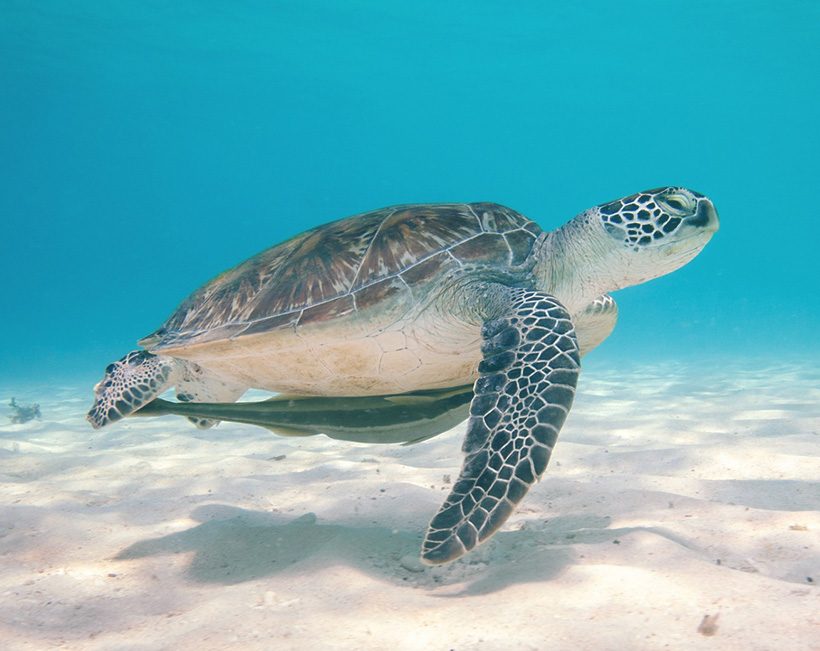Did you know that sea turtles have been living on planet Earth since the time of the dinosaurs?
Around 110 million years!
There are seven different species of sea turtles, six of which — green, hawksbill, Kemp’s ridley, leatherback, loggerhead, and the olive ridley can be found throughout the ocean – in both warm and cool waters. The seventh species, the flatback, lives only in Australia.
What’s amazing about sea turtles is that after years traveling the open ocean they return to the nesting grounds where they were born to lay their eggs. In their voyage from nesting to feeding grounds – some species will travel more than 1,000 miles.
But life is filled with danger for a sea turtle, especially the hatchlings. On the beach, birds, crabs, raccoons, even foxes will eat hatchlings. And if hatchlings make it to the ocean, they are still tasty snacks for seabirds and fish.
However, the greatest threats to sea turtles aren’t from natural predators; they are from humans. Accidental catch in commercial fisheries or entanglement in marine debris are serious threats to sea turtles, as well as destruction of beach habitat, harvesting or poaching for meat and eggs, and even boat strikes.
But people aren’t just sitting by, nations are working together to protect and conserve sea turtles. In 1981, an international agreement made it illegal to trade all seven species of sea turtles and their eggs, shells, or meat internationally.
Governments are figuring out ways to reduce bycatch such as requiring new designs of fishing gear and changes to fishing practices to make them less likely to capture turtles. And, marine protected areas are being established in important sea turtle habitats.
Conservation organizations are working with local communities to help change fishing practices as well as transition incomes away from turtle harvesting and toward turtle tourism. Other local efforts include: working to reduce sources of marine debris, monitoring sea turtle nests to protect them from poaching; and passing laws that prevent irresponsible development on known nesting beaches.
A healthy ocean depends on sea turtles. And sea turtles need our help!

